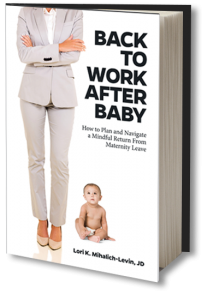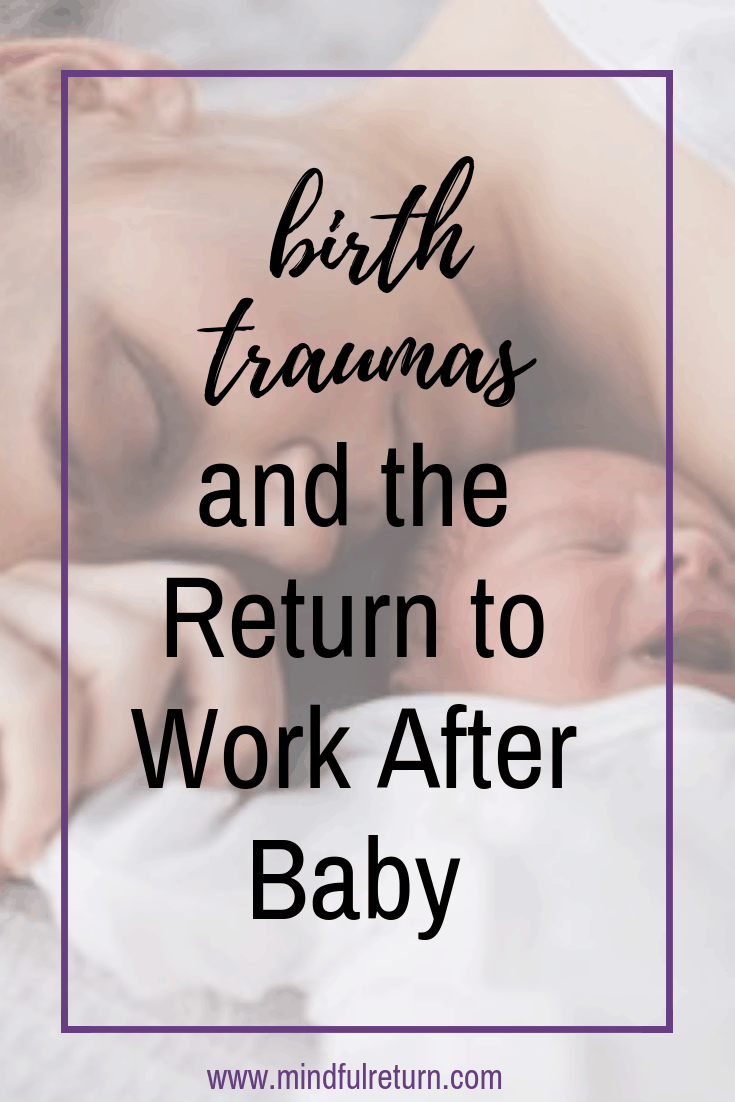 “Talking about trauma can itself be triggering,” began Sheryl Aaron, LICSW, at a presentation she gave last week entitled “Mitigating Birth Trauma: How You Can Help Prevent Postpartum PTSD.”
“Talking about trauma can itself be triggering,” began Sheryl Aaron, LICSW, at a presentation she gave last week entitled “Mitigating Birth Trauma: How You Can Help Prevent Postpartum PTSD.”
So we’ll start there. By first acknowledging that even talking (and writing) about this stuff is hard. Attending this talk definitely stirred up memories for me, even 6 and 8 years after being pregnant.
Aaron’s talk was part of a Perinatal Mental Health Symposium I attended last week at Children’s National Medical Center in Washington, DC, where psychologists, psychiatrists, social workers, policy professionals, physicians, doulas, chaplains and yes, one lawyer (me) came together to explore challenging issues and community resources related to postpartum mental health.
In her presentation, Aaron shared some data on exposure to traumatic events broadly (nearly two-thirds of all adults have been exposed to some form of traumatic event) and the prevalence of postpartum PTSD (occurs in 9% of women who have given birth, and sub-clinical PTSD up to 25%). She talked about the effects of birth trauma on families. Risk factors for postpartum PTSD (turns out there are many). And what providers and community members can do to help people cope after the “very lonely experience” of trauma.
Aaron put up several quotes from Cheryl Tatano Beck’s book, Traumatic Childbirth. Several struck me as worth sharing here:
- “Birth trauma lies in the eye of the beholder.”
- “No one ever came in afterwards to debrief, counsel, or even explain to me why, how, or what happened…We saw the doctor on his rounds the next morning. The first words out of his mouth were: ‘Well, you doctors make the worst patients.’”
- “No one on the other side of the curtain bothered to talk to me…The surgeon and her assistants were joking among themselves…I felt like I didn’t matter anymore.”
I was incredibly fortunate to have had two healthy boys and no traumatic births. Nevertheless, several experiences I had when I was pregnant came flooding back to me, as I spent the day at the Symposium thinking about perinatal mental health issues.
In one instance, I was at my ob/gyn office for an appointment late in my pregnancy, and the physician informed me that she thought my baby was measuring quite large. She couldn’t be sure, she said, given the measurements from the ultrasound were imprecise, but she thought that the baby’s large size might be an indication that I’d need a C-Section. She suggested we could do another ultrasound to verify, but also said that might be pointless. Then, when I asked her to go ahead with the second ultrasound she had originally suggested, she took the option off the table. I was extremely upset at the thought of a C-Section, and when I expressed this concern, my physician told me “women have them all the time, and it turns out fine.” I was not amused.
Okay, so that was the sterilized version what went down that day. What was the real story? I completely lost it in her office. I broke down into a sobbing, pleading mess. And I sat in her office and refused to leave. I didn’t feel like I was getting any straight answers (in retrospect, perhaps there were none to get). Yes, of course, I trusted that things would ultimately be okay if I had a C-Section, but that wasn’t the point at that particular moment.
What was the point? I felt as though my doctor hadn’t actually heard me. Her approach was defensive, not collaborative. Her tone said, “what do you want me to do about this?” And my husband got to watch a doc flounder with her patient and his own wife’s anxiety levels go through the roof. I wonder now, why that incident didn’t trigger an anxiety screen or referral.
“What is seen as an acceptable level of anxiety is really distressing to me,” shared doula Samantha Griffin of DC Metro Maternity during the symposium. She was talking about the postpartum distress so many new moms feel, and how reluctant we can be to reach out for help.
Outside of my doctor’s office outburst, other memories cam back to me in the same vein. A breakdown after attending the session at the hospital where I learned about all the various things that could go wrong during delivery. An ongoing terror that I wouldn’t get to the hospital in time to get antibiotics, given that I had tested positive for Group B Strep (and was allergic to penicillin, so needed to take a different drug eight hours before birth to ensure effectiveness). Panic attacks related to prior family trauma. Tears on the kitchen floor after going back to work, feeling both sleep deprived and as though I was failing at keeping all the balls in the air.
Even sharing all of this here somehow feels shameful. And, dare I say, “weak.” Maybe my feelings were all part of that difficult “matrescence” process Alexandra Sacks talks so eloquently about in her TED talk? “People have been through much worse,” the critical voice in my head snips.
Yet I know that for me, the anxiety was something more. It was what prompted me to create Mindful Return in the first place. And I feel strongly enough about normalizing this conversation about postpartum mood issues and trauma that I’m willing to put myself out there about my own experiences.
What does any of this have to do with the return to work after baby?
The return to work itself brings up so many complex feelings for so many of us mamas. There’s the excitement about adult human interaction. And the guilt. The sadness. And the never enoughness. Add to that the probability that we haven’t yet really taken the time to process or get help with any pregnancy- or birth-related traumatic events, and we are full up.
In her remarks, Aaron talked about things the birth community can do to actually help prevent postpartum PTSD. Things like universal screening for risk factors. Embedding mental health professionals in prenatal health offices. Trauma-informed exams and birth care. And training health care providers and birth workers to be aware of their own triggers.
But what can we the mamas, do? First, we can take to heart Ms. Griffin’s reflections that too often, we see our own high levels of distress as somehow normal. We can sink into the idea that getting help is a good thing. Realize that there may be things we need to process. And find mental health professionals who can help us.
We can open up to our friends about our experiences. Ask our new mama friends how they are doing. And we can truly, deeply, listen to their answers.
We can talk about these traumas. So that when we go back to work, there is one less thing weighing us down, and we can be more fully present with our babies and in our careers.
 If you need more help getting your head in a better place to return to work after maternity leave, join us for the next session of Mindful Return.
If you need more help getting your head in a better place to return to work after maternity leave, join us for the next session of Mindful Return.
Want more practical tips on working parenthood? Check out my book, Back to Work After Baby: How to Plan and Navigate a Mindful Return from Maternity Leave



This is great Lori! I had similar experiences at my doctors office that caused such anxiety. At my 20 week ultrasound, my doctor came in and said “nice to meet you.” No big deal, but somewhat unsettling to me at the same time. Certainly no warm fuzziest there, but I wasn’t sure I needed them! At my 28 week appt, the doctor I rotated through at that time was so dismissive of all of my questions …
“my insurance said I need you to write an RX for my breast pump.” “Oh there’s probably just a form you fill out on their website, bring in and we sign. Check for that.”
“My flex spending will reimburse for my doula if you provide a Letter of Medical Necessity. Will you write one on my behalf?” “But they don’t DO anything.” “Studies show having her there may help me achieve many of my labor goals by . And being single, having her does feel very necessary.” “Hm. I’d have to look into those statistics.”
“Are you worried that I’ve only put on 6 lbs in 28 weeks?” “Not really but I’ll write you a nutrition consult if you want to talk about it with someone.”
“When my heart rate increases , I feel and hear my heartbeat in my ear drum. Is that normal?” “It’s probably nothing but here’s a cardiologist referral.”
I felt just as you did. No one was listening to me. And if they didn’t hear me now, what kind of voice was I going to have in the delivery room? I realized that they saw a foregone conclusion – a 40 year old who was going to be whisked in for a C at the first sign of anything – the one thing I really hoped to avoid unless it were truly necessary. And I didn’t feel like my voice would be strong enough to seek alternate paths first, because I didn’t trust they’d listen to me then, either. I wasn’t very emotional during pregnancy and the only times I ever cried were leaving doctors appointments.
I changed doctors and hospitals after that 28 week appointment. I delivered in a hospital setting with midwives who asked me, at our first meeting, what I wanted. I hadn’t been asked that before then. I delivered my daughter after 30 hours of labor that was slow to progress and brought with it a few complications that the hospital managed beautifully. My midwife and doula (who was reimbursed through the LMN written by my midwife) coached me through it all , and never rushed me or the process, even though I learned later they were all pretty sure there might be a C Section in my future at some approaching point. There wasn’t, and I can’t be sure, but I am entirely convinced things would have been different if I didn’t make the change I did.
I am grateful that what I think were healthy levels of anxiety pushed me to make change. Even with that, I think about that 28 week appointment a lot. Thanks for sharing this!
So grateful to you for sharing your experiences here, Amy. So glad you were ultimately able to get the support you needed. There’s still so much progress that can be made in this space, though, which is evidenced by both of our stories. Hugs, mama.